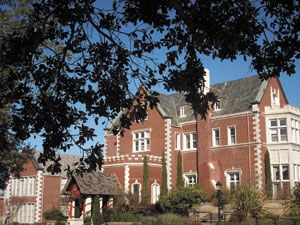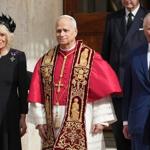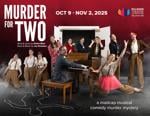The life of Charles Frederick ("Freddie”) Kohl, the man who commissioned the building of Kohl mansion, was turbulent and ultimately tragic. Born in 1863, he was the son of an ambitious ship’s captain and co-founder of the Alaska Commercial Company, William C. Kohl, who also became known as "the frugal millionaire.” Freddie exhibited neither his father’s Pennsylvania Dutch work ethic nor his paternal fortitude.
Raised indulgently on his family’s 40-acre estate in central San Mateo (the current site of Central Park), Freddie Kohl evolved into a fox-hunting and polo-playing socialite and free-spender. He traveled frequently to the East Coast and Europe. Until his father died of hepatitis in 1893, Freddie did not have any important responsibilities.
The late 19th century was a time when ostentation and conspicuous consumption reigned supreme, at least for those who could afford it. Freddie could hardly wait for his own chance to begin. He dropped out of Swarthmore College after three years and began hosting and attending lavish parties at home and wherever he traveled. The pattern continued throughout his two marriages. In fact, it was Freddie’s desire to create a proper place for "Bessie,” the former Mary Elisabeth Godey of Washington, D.C., his beautiful contralto-voiced second wife, to showcase her singing to anticipated guests that influenced the construction of the mansion they built on their own 40-acre property in the Burlingame hills.
Thus, it was with music in mind that the 53-room rose brick Kohl Mansion was born. Designed by George Howard of Hillsborough, the elegant Tudor structure closely resembled Somerset House, residence of the Duke of Surrey in England. The two-story baronial Great Hall that also served as a ballroom was patterned after Arlington Hall in Essex. Bessie could look forward to singing in an environment that was at once intimate, elegant…and grand. With the console of an Aeolian organ hidden behind a tapestry in the ballroom and the pipes strategically placed on the upper balcony, the entire house could be filled with sound.
The Kohls named the estate "The Oaks.” It became a favored destination for San Francisco society and the site of many galas from its completion in 1914 until Mrs. Kohl abruptly separated from her husband barely two years later. A legal separation agreement was signed and Bessie moved to New York. During World War I, Bessie sang for the troops in France and never left, marrying and surviving two French noble husbands. She lived until 1949, dying in Monte Carlo with the title of Countess. Freddie was not nearly so lucky.
Though he and Bessie had become very popular among the "smart set,” their life together had been seriously marred ever since 1911 when Freddie was shot in the chest in a bizarre turn of events. An unstable French maid named Adele Verge had been hired during a family trip to attend his mother. She began acting strangely upon their return from France and, while at a friend’s hotel in Southern California, she struck the desk clerk and spat at guests. Freddie and the hotel owner had her arrested. Rejecting Freddie’s generous settlement offer, Adele sued him for unjustified dismissal and both men for false arrest.
Ongoing feud
Adele Verge lost the case. Then, when Freddie and his lawyers emerged from the courthouse elevator, Adele agitatedly came up and shot Freddie in the chest, barely missing his heart. Though he was expected to die, Freddie pulled through. He woke during surgery and, according to his doctors, said that he "freely forgave Adele Verge for her act.”
Nevertheless, Freddie subsequently became obsessed with the thought that Adele would return to finish him for good. Indeed, Adele was committed to a mental hospital in France, but escaped in less than a year and promptly began sending threatening letters to Freddie. The psychological effect was devastating because Freddie was confronted with a threat that wasn’t rational and against which the law afforded him few protections. The frequency of the letters increased several years later when Adele Verge sailed to Canada and made her way westward in the direction of California. But Freddie Kohl was not to die by Adele’s hand.
Freddie turned inward and became almost completely self-absorbed. In a departure from past behavior, he practically gave up accompanying his popular wife to the many charity and other social events that she continued to attend. He did not even join her at a concert that featured their house-guest, famed operatic soprano Nellie Melba.
Still, the marital split shocked many who knew them. One account had it that when Bessie returned from a short solo Hawaiian vacation, Freddie announced that the marriage was over. If so, there is no evidence that Bessie sought to dissuade him. Other rumors placed the blame squarely on Bessie for alleged excessive religiosity at the expense of her marriage or for failing to adequately support Freddie during the depression that followed his near-fatal shooting by Adele Verge.
Sad memories
Without Bessie, Freddie no longer had the heart to stay on by himself in the Burlingame home. For him, Kohl Mansion had represented a hopeful fresh start after the shooting and the subsequent death of his mother in 1912. These events and Freddie’s father’s death in 1893, all took place while Freddie was living in the parental home in San Mateo, with Bessie present for the last 10 years. Both the Burlingame and San Mateo houses, luxurious as they were, evoked too many sad memories. Alone at the end of 1916, Kohl essentially fled to new quarters in the St. Francis Hotel in San Francisco.
Now aged 53, Kohl was childless, widowed (his first wife, née Edith Dunlop, died of appendicitis in the fifth year of their marriage) and permanently separated from his second wife. But Freddie Kohl did not find happiness in San Francisco either. Not even after the "stunningly beautiful” New York divorcée, Marion Louderback Lord, joined him as his mistress and companion, a role she would fill during these, the last five years of his life.
Upon moving to San Francisco, Freddie asked friends to take over the management of the Kohl businesses which he had been running ever since his father’s death. The Burlingame mansion was confided to caretakers. In 1921, it was leased to provide the locale for the production of the film, "Little Lord Fauntleroy,” starring "America’s sweetheart,” Mary Pickford, and her husband, Douglas Fairbanks. (Proceeds were donated to charity.)
Deterioration and scandal
Kohl’s physical and mental health continued to deteriorate, however. In 1921, he became short of breath and had trouble walking, a consequence, it was thought, of Adele Verge’s bullet that had never been removed due to the danger of surgery so near the heart. Later in the year, Kohl suffered a stroke. His physicians advised recuperating in a place with a warmer climate.
Kohl and Ms. Lord chose the Del Monte Lodge on the Monterey Peninsula. His convalescence seemed to be going well. Yet a scant month later, on Nov. 23, 1921, Freddie Kohl carefully finished breakfast alone and, while staring at the same Pacific Ocean that had lured his father to seek his fortune, he put a gun to his head and fired. There was no suicide note. Despite Freddie’s many visits to New York and recognition as a prominent "capitalist,” the news of his death did not make the New York papers (though the terms of his will eventually did).
Recommended for you
Little is known about Freddie’s intimate relationships, whether with friends, family, spouses or even Mrs. Lord. There is reason to suspect that his marriage to Bessie was troubled for some time. The earlier years were filled with a shared love of music and high living. Freddie lavished jewels and designer clothes on his wife. In 1905, they bought "Idlewild,” a lakeshore property in the Tahoe Pines area of Lake Tahoe from the Crockers. One year later, they purchased the Crockers’ 60-foot launch, also called "Idlewild.”
The Kohls used the estate to entertain sumptuously in the summertime. But more than a whiff of scandal ensued. Gossip linked Bessie romantically with socialite Cliff Weatherwax, a frequent Idlewild guest of the Kohls, and a "dandy” who may well have upstaged homely Freddie Kohl. Idlewild was soon referred to as "Cliff’s Kohling Station.” This embarrassment ended when Weatherwax died under apparently mysterious circumstances at the Ritz-Carlton Hotel in New York City.
The subsequent Kohl separation, whether related to the Weatherwax romance or not, was to have significant repercussions for Kohl mansion. Freddie was still legally married to Bessie when he died, but he willed the mansion to Marion Louderback Lord. Bessie’s separation agreement provided her with nothing more than a $250,000 inheritance. Legal speculation in the newspapers at the time held that the agreement would be very difficult to overturn and Mrs. Kohl did not dispute the will. Two eastern uncles who had been named in a previous will did sue for inclusion, but lost in court. The mansion and its contents consequently became the property of Mrs. Lord, as did the vast bulk of the $5,500,000 Kohl estate.
Mrs. Lord auctioned off the contents of the Burlingame mansion and, in 1924, sold "The Oaks” to the Sisters of Mercy for $230,000, considerably less than Kohl had invested in it. The City of San Mateo bought the parental property for $80,000. In 1926, Mrs. Lord sold the Idlewild estate to Herbert Fleishacker. After cashing out all the tangible assets in her inheritance, Ms. Lord left for Europe and was not heard from again. The ultimate fate of the Kohl fortune remains unknown.
New life
Today, nothing remains of Idlewild. But Kohl Mansion has prospered. It became a convent and regional headquarters for the Sisters of Mercy in 1924 and the home of Mercy High School for girls in 1931. The Aeolian organ, its sound familiar to generations of Mercy students, was eventually removed. In 1982, Kohl Mansion became a National Historical Landmark. Also in 1982, Kohl Mansion reconnected with its musical roots with the inauguration of the Kohl Mansion Concert Series. This has been extended with a subsequent extensive youth and community music education program.
Whatever his faults, Charles Frederick Kohl was known for his kindness and generosity. Though a non-Catholic himself, he built Corpus Christi Chapel at Lake Tahoe for his Catholic wife and endowed it in his will, making no changes even after their separation. Many family retainers and at least one business assistant were included in his will, as were relatives of his long-deceased first wife. He was considered easy to get along with.
Kohl’s benign reputation may well have followed him posthumously insofar as the Freddie Kohl ghost story is concerned. During the early convent years, unexplained sounds, movement of objects and a mysterious powder frightened the nuns and convinced them that Freddie was still with them. Services were held to cleanse the mansion of his spirit. But to no avail.
Clues to Freddie’s presence continued and became a source of amusement for the high school girls. Some speak of the friendly ghost with evident fondness. As one alumna put it recently, "I enjoy thinking that he’s still there keeping an eye on what’s going on.”
Whether it is his spirit or his memory that has survived, Freddie Kohl would surely be delighted to see up to 200 "guests” assembling in both the Entrance and Clock Halls before filing into the Great Hall to attend the eight regular Kohl Concerts each season. Those who came early would be waiting comfortably in the lovely former Library with its still lived-in look and paintings original to the mansion.
But it is the Great Hall that best preserves the heart of Kohl’s musical vision. The huge fireplace, surmounted by a fresco with medieval themes, is appropriately baronial. The ceiling is a full two stories above and the height is punctuated by a balcony that accommodates overflow stand-up listeners. Internationally renowned musicians perform on a dais placed before the fireplace. The acoustics are extraordinary. Altogether, the effect is that of an exclusive private performance.
As in the old days, the musicians mingle with the guests afterward — each, perhaps, choosing a complimentary glass of red or white wine or bottled water, if preferred — in the former Morning Room. A lavish buffet is available in the adjacent former dining room, which soon fills with animated conversation and interaction among attendees that is more reminiscent of private functions than public performances.
Bittersweet link
There is something bittersweet in the link between the life of Freddie Kohl and the endurance and evolution of the mansion. It began as a private passion that failed to bring him personal happiness, but went on to give pleasure to generations of both students and concertgoers.
Freddie’s life is also reminiscent, in some ways, of the lives of many of the finest composers whose music is still heard in the Kohl Great Hall. How many of them also experienced wide swings between joy and despair, had obsessive concerns and were in the grasp of self-defeating personal failings or conflicts?
There is Mozart, perhaps the most gifted of them all, whose rebelliousness offended patrons and whose uncontrollable spending and gambling ultimately reduced him from bourgeois comfort to poverty and early death. Schubert led a tumultuous life and was compulsively sexual, dying young and in poverty, with syphilitic paranoia. Schumann, after great success, became mentally unstable, attempted suicide and was finally institutionalized. Brahms, who loved Schumann’s wife throughout his life, never could persuade her to view him as more than a friend, even after she was widowed, and died a presumably frustrated bachelor.
Peter Ilyich Tchaikovsky provides the most dramatic example of a musician’s inner torment. According to Kai Christiansen, Kohl musicologist, Tchaikovsky experienced chronic anxiety and was "constantly stretched between the polarities of ecstasy and despair, each inseparable from the other in that peculiar blend found in many great artists…He (also) struggled greatly with his awareness of being homosexual and navigating the contradictory worlds of private and public life.” It is believed by some that Tchaikovsky ended the pain of his conflicted life by deliberately drinking contaminated water and contracting fatal cholera.
These composers left a legacy of music that reflected their own joy and sorrow that others could then simply play, listen to, and benefit from. We are fortunate to have the pleasure of the music without having to endure whatever pain attended its creation.
Freddie Kohl was neither especially talented nor creative. The happiness that he strove for throughout his life repeatedly eluded him. But surely his most lasting achievement — with the helping hand of the Sisters of Mercy — lies in leaving us Kohl Mansion where great music is reunited with surroundings like those the composers and their audiences knew in their own time.






























(0) comments
Welcome to the discussion.
Log In
Keep the discussion civilized. Absolutely NO personal attacks or insults directed toward writers, nor others who make comments.
Keep it clean. Please avoid obscene, vulgar, lewd, racist or sexually-oriented language.
Don't threaten. Threats of harming another person will not be tolerated.
Be truthful. Don't knowingly lie about anyone or anything.
Be proactive. Use the 'Report' link on each comment to let us know of abusive posts.
PLEASE TURN OFF YOUR CAPS LOCK.
Anyone violating these rules will be issued a warning. After the warning, comment privileges can be revoked.